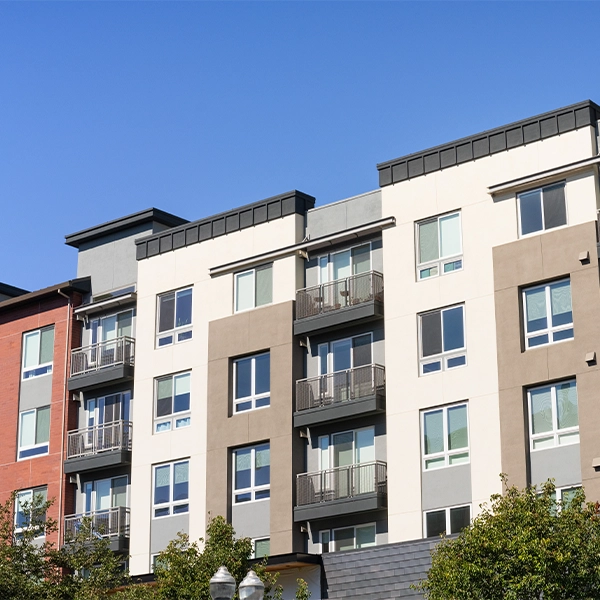As Radon Measurement Professionals, it is important to stay up to date on current research and discussions around radon in various property types. Often, new research findings will usher in new and improved standards that help to improve the efficiency and accuracy of our testing services. One area that has started to see more research emerge is the impact of radon on multifamily properties such as apartment complexes and condos.
Before 2023, Fannie Mae and Freddie Mac only required 10% of ground-contact units of multifamily properties be tested for radon. Recognizing the limitations of this approach, Fannie Mae and Freddie Mac updated their requirements to 25%, in line with the protocols of the US Department of Housing and Urban Development (HUD). However, evidence suggests that even this increase is not enough to adequately protect residents.
Why the Radon Testing Changes Aren’t Enough
A study published in 2022 by the Journal of Public Health Management and Practice analyzed data from 7892 ground-level units in multifamily buildings across 29 states, including Texas. The findings were concerning, as they revealed that about 15% of these units had radon levels above the EPA’s action level of 4 pCi/L, with some units showing dangerously high levels, up to 96 pCi/L.
When testing only 10% of units, as was previously required, the protocols failed to identify 47% to 69% of units with elevated radon levels. Even with the updated 25% testing requirement, 32% to 46% of units with dangerous radon levels were still missed. These gaps highlight a significant risk to the health and safety of residents in untested units.
The Importance of Testing 100% of Ground-Level Units
To ensure the safety of all residents, it is crucial to test 100% of ground-contact units in multifamily buildings. This comprehensive testing approach is necessary to detect and address elevated radon levels effectively. The study found that to be 95% confident that no units in a building have radon levels above the EPA action level, every ground-contact unit must be tested.
For property owners and managers, this means adopting a more rigorous testing protocol than what is currently mandated. While testing 25% of units might seem like a reasonable compromise, the data clearly shows that it leaves many residents at risk. Comprehensive testing can prevent potential health issues and ensure a safer living environment for all tenants.
Professional Radon Testing for Multifamily Properties
Investing in comprehensive radon testing is not just a regulatory obligation; it is a crucial step in protecting the health and safety of your residents. As NRPP licensed and certified Radon Measurement Professionals, Southwest Radon Eliminators must adhere to rigorous standards when testing for radon. Per the national standard for radon testing from the Indoor Environment Association (formerly AARST) and the American National Standards Institute (ANSI), we must test 100% of ground-contact units. Contact us today to learn more about our commercial and residential radon testing services!
